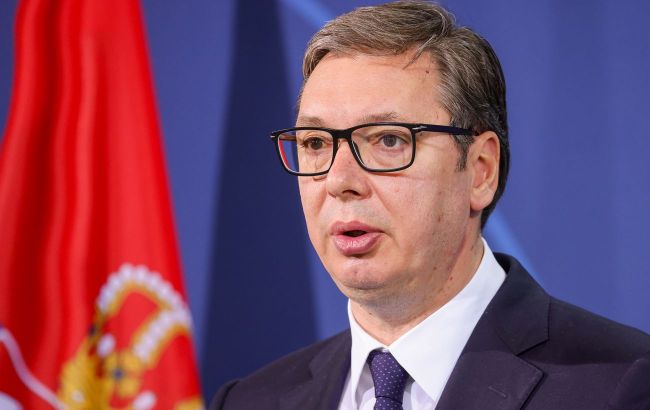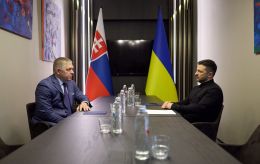Serbia gives Russia one more week to find NIS buyers to avoid US sanctions, Vučić says
 Photo: Serbian President Aleksandar Vučić (Getty Images)
Photo: Serbian President Aleksandar Vučić (Getty Images)
Serbia has given Russian partners another week to find buyers for NIS assets, most of which remain under Russian ownership. The move aims to prevent US sanctions against NIS, reports President Aleksandar Vučić.
Vučić seeks to avoid nationalizing NIS at any cost, with the government fully supporting his approach. During a government meeting on November 16, he noted that US sanctions against NIS are not yet affecting Serbia because Belgrade is well prepared.
He added that the country has sufficient fuel reserves and no reason for panic. The government expects a decision on NIS by next Sunday and hopes Asian and European partners, negotiating with Russian counterparts, will agree to discuss ownership, enabling Serbia to announce it jointly.
Vučić also emphasized that his reluctance to nationalize NIS stems from the company not being predominantly owned by Serbia. The government aims to exhaust all options for resolving the issue before resorting to nationalization.
US sanctions against NIS
NIS is Serbia's only major oil refining company, supplying most of the country's oil needs. The company is largely Russian-owned: the Serbian-Russian Gazprom subsidiary, Gazprom Neft, holds 44.9% of shares, while Gazprom itself owns 11.3%. The Serbian government controls just 29.9%.
NIS operates Serbia's sole refinery in Pancevo, near Belgrade, with an annual capacity of 4.8 million tons. US sanctions have targeted the company since January 2025. Washington later agreed to suspend them, but only on the condition that Russia fully exits ownership of the refinery.
At the end of September, the US postponed sanctions against the company for the seventh time. Following a series of delays, Washington announced that sanctions would apply to NIS starting October 8. As of mid-November, NIS has still not changed its ownership structure and remains effectively under US sanctions.

